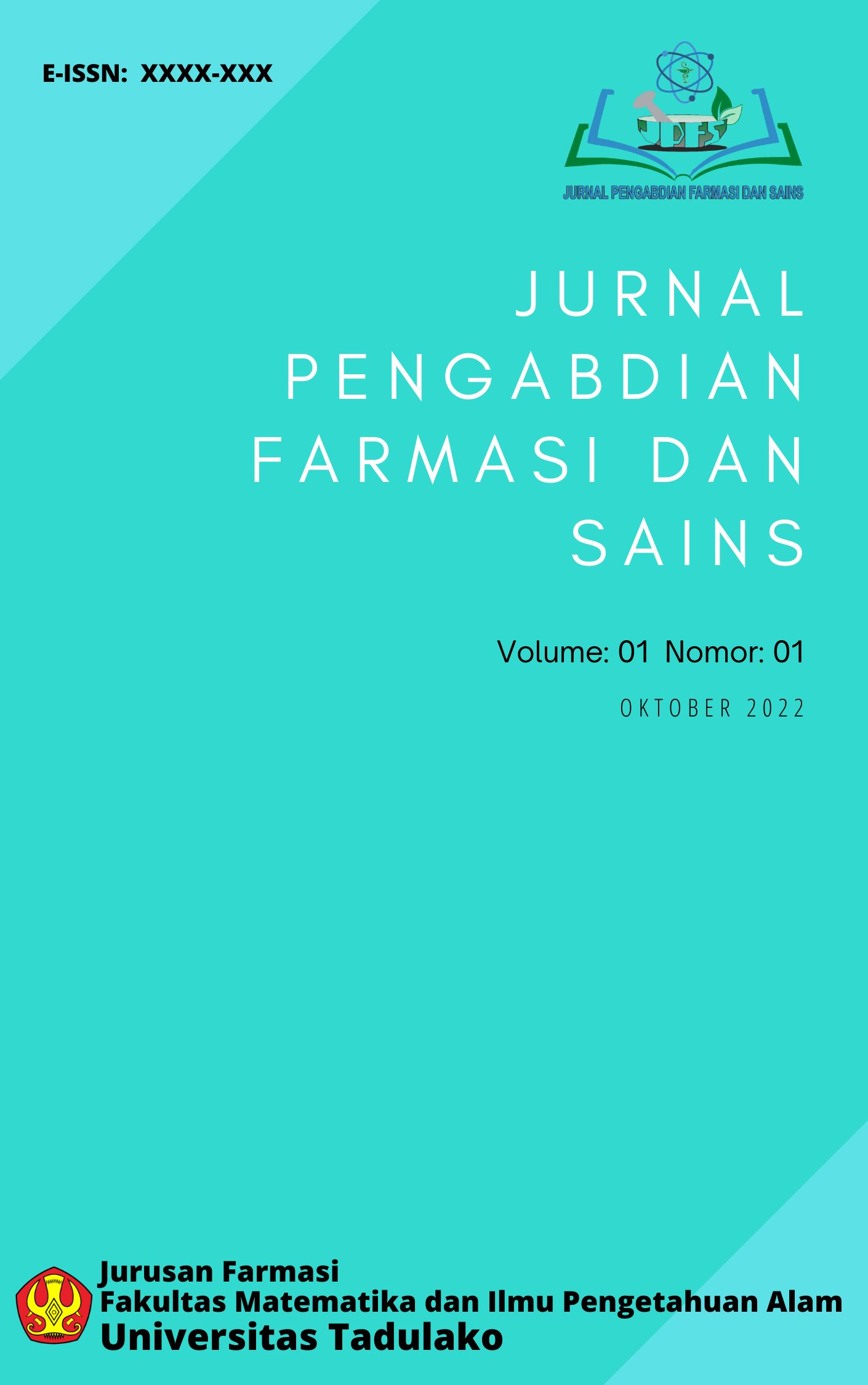Main Article Content
Abstract
Indonesia is a tropical country known for its various biological natural resources. Indonesia has more than 80,000 species or types of plants and only a small part is understood by the community that has benefits and uses. Plants are a significant source of drugs used in the treatment of various categories of human diseases. One of the plants used as medicine by the community. Moringa plant acts as a cardiac and circulatory stimulant, has antitumor, antipyretic, antiepileptic, anti-inflammatory, antiulcer, diuretic, antihypertensive, cholesterol-lowering, antioxidant, antidiabetic, antibacterial, and antifungal properties. This activity is carried out by means of direct training to the community. The activity was carried out in the village of Mangeloreng, Bantimurung District, Maros Regency, South Sulawesi Province, Indonesia. Mangeloreng Village has the status as a definitive village and is also classified as a self-help village. Mangeloreng Village is known as a horticultural village because its residents grow many types of plants and fruits to support their economy. This activity was carried out by means of socialization, starting with the benefits of Moringa leaves and processing methods for making simplicia, then continued with training on how to make herbal teas and their presentation, then develop a follow-up plan. The expected outputs for the institution are Community Service Reports and accredited National Journals and the expected outputs for the community in this activity are 1) The creation of a product in the form of herbal tea made from Moringa leaves that can be consumed daily; 2) Opening business opportunities for partner communities; 3) The formation of a community that cares about health; 4) The formation of a society that is thrifty and can make home products so as to reduce daily expenses
